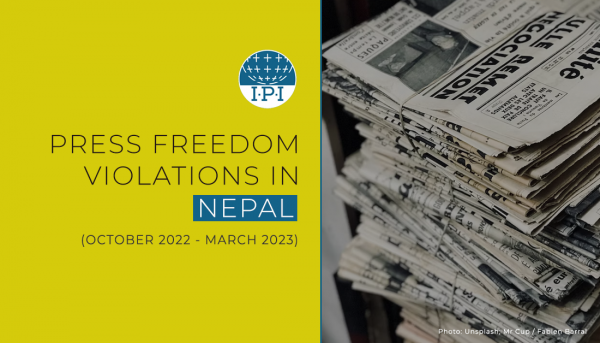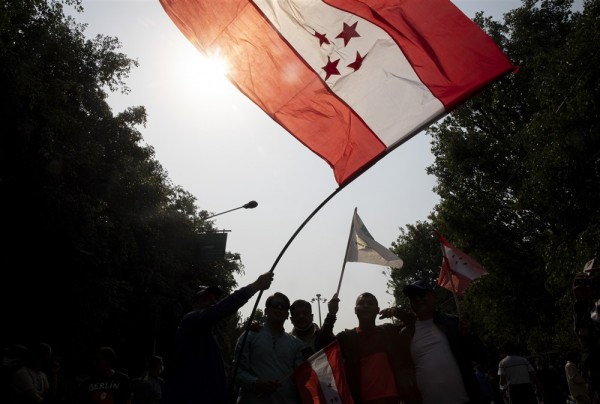Nepal’s government should move swiftly to investigate the apparent gang killing of a well-known female journalist and harassment of another reporter in the southeastern town of Janakpur, the International Press Institute (IPI) said Wednesday.
Uma Singh, a broadcast journalist for Radio Today FM in Janakpur, was stabbed repeatedly by a group of approximately 15 people who entered her rented room in Janakpur, witnesses said. She died en route to the hospital in the capital Kathmandu, some 240 km away. Funeral services were held 13 January in Janakpur with many journalists attending. Commerce and public transportation in Janakpur were disrupted for two days to protest the killing.
Singh, who was in her 20s, was well known for her reports on women’s rights, criticising the caste and dowry systems, as well as on political issues. She was vocal in condemning the ongoing violence in the southern Terai region, where armed militant groups have been fighting for the establishment of an autonomous Madhesi state and greater rights for the Madhesi people, the dominant ethnic population of Terai.
The attack occurred around 7:45 pm on 11 January.
That same evening, another female journalist in Janakpur, Kantipur Daily correspondent Manika Jha, reported receiving death threats and was verbally abused after a group of people smashed the window of her residence. Following the threats, the police have provided Jha with protection at her residence.
IPI condemned the attacks and called on the government to investigate the killing of Singh. “We would like to remind Nepal Prime Minister Prachanda about the commitment to respecting press freedom that he made to the IPI mission that visited Nepal in June 2008,’’ IPI Director David Dadge said. “Such a commitment carries the responsibility of bringing prosecutors of crimes against journalists to justice and therewith giving a strong signal that such attacks are not tolerated.”
In Kathmandu, IPI’s Nepal National Committee said in a statement it was “shocked and appalled by this murder.” IPI’s Nepal Centre for Media Freedom monitors press freedom violations and attacks against journalists in Nepal and works to stop such attacks.
Singh is the fourth journalist killed in Nepal in the past two years.
Jagat Prasad Joshi, an editor for the Maoist daily Janadisha, was found dead in a forest near his home in Malakheti, in the western district of Kailali, on 28 November 2008. Local media reported that Joshi, who went missing on 8 October, may have been murdered because of his writing.
On 12 January 2008, Pushkar Bahadur Shrestha, 57, publisher of the Highway Weekly near the southern town of Birgunj, was shot dead by armed gunmen suspected of belonging to the militant group Janatantrik Terai Mukti Morcha.
Birendra Shah, a correspondent for Nepal FM, Dristi Weekly, and Avenues TV in Bara district, was kidnapped on 4 October 2007 by members of the Communist Party of Nepal (Maoist). A month later, a member of the party, Lal Bahadur Chaudhary, and two of his associates, admitted killing Shah the day they kidnapped him. Shah had written reports that were critical of local Maoists.
According to news reports, Maoist cadres were found involved in the murder of Shah and Joshi.
Singh alluded to the dangers of working as a journalist in a 2008 taped interview with the UN Mission in Nepal (UNMIN). “It is a big problem to work in the Terai,” she said. “Many organisations and groups continue to put pressure on us. If we do not air the news of their choice, they issue threats. There are even greater problems for women. … Various armed groups that are mushrooming have been a major challenge for us. … It is really a tough job for us to work as journalists.


